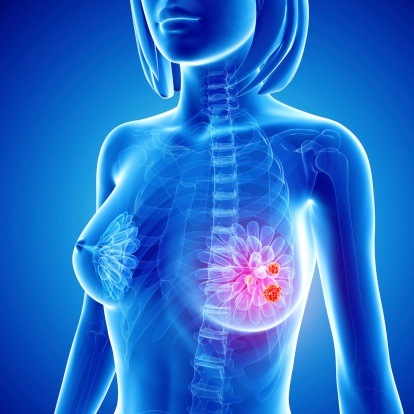
Patterns of Depressive Symptoms ID’d in Breast Cancer Patients
Nearly one-third of women with breast cancer experience temporary or lasting depressive symptoms during and after treatment, according to a study published online April 14 in JAMA Network Open. Cécile Charles, Ph.D., from Institut Bergonié in Bordeaux, France, and colleagues examined longitudinal patterns of depressive symptoms in patients with breast cancer from diagnosis to three years after treatment. Analysis included 4,803 women.
Medical Financial Hardship Tied to Higher Mortality in Cancer Survivors
K. Robin Yabroff, Ph.D., from the American Cancer Society in Atlanta, and colleagues examined the associations of financial hardship and mortality in a large nationally representative sample of cancer survivors. The analysis included 14,917 cancer survivors aged 18 to 64 years and 10,391 aged 65 to 79 years participating in the 1997 to 2014 U.S. National Health Interview Survey with linked mortality data through 2015.
Chemotherapy-Induced Amenorrhea Prognostic Impact in Premenopausal Breast Cancer
Yifei Wang and colleagues performed a meta-analysis to describe the clinical risk factors of CIA, as well as its prognostic implications in patient with breast cancer. They reported that age, hormone receptor (HR) status, estrogen receptor (ER) status, progesterone receptor (PR) status, tamoxifen administration, and chemotherapy regimen were shown to be independent predictive factors for occurrence of CIA. Notably, they also found that “CIA is a favorable prognostic factor in premenopausal patients with breast cancer. ”
Adopting a Keto Diet May Benefit Colorectal Cancer Patients
According to a new study from researchers at the Perelman School of Medicine at the University of Pennsylvania, mice on low-carb, high-fat keto diets had a significant resistance to tumor growth and development. Originally published in Nature, the scientists found this effect came from beta-hydroxybutyrate (BHB), which is a small organic molecule created in the liver as a “starvation response” by low-carb keto diets as an alternative energy source for key organs.







 © 2025 Mashup Media, LLC, a Formedics Property. All Rights Reserved.
© 2025 Mashup Media, LLC, a Formedics Property. All Rights Reserved.